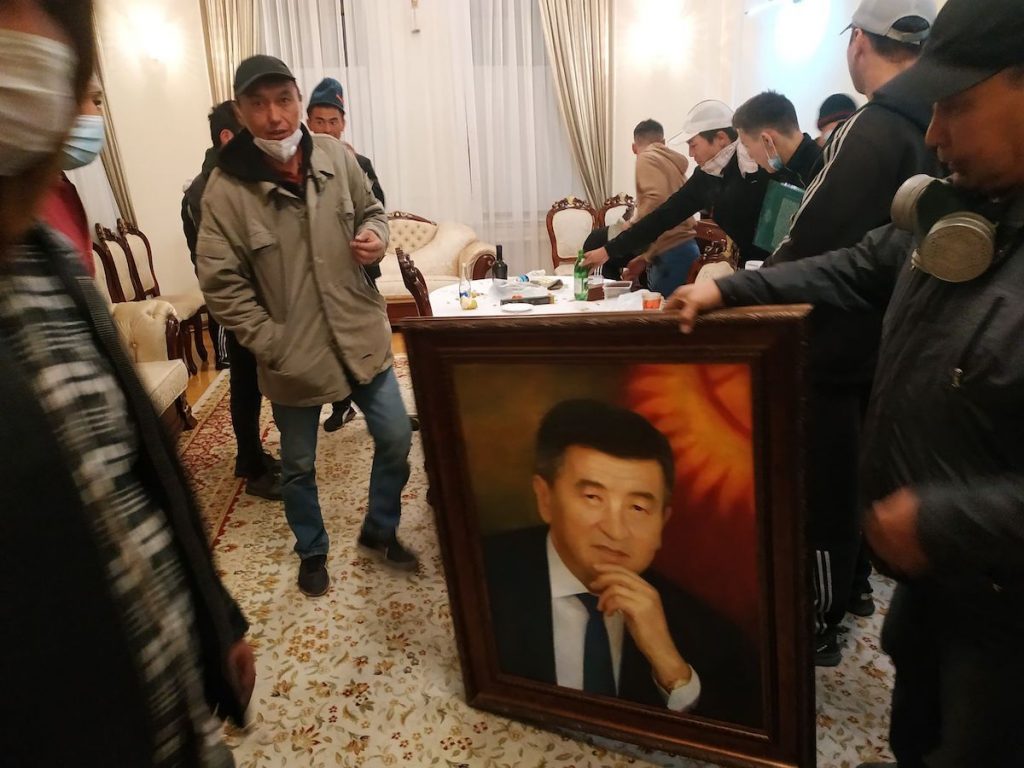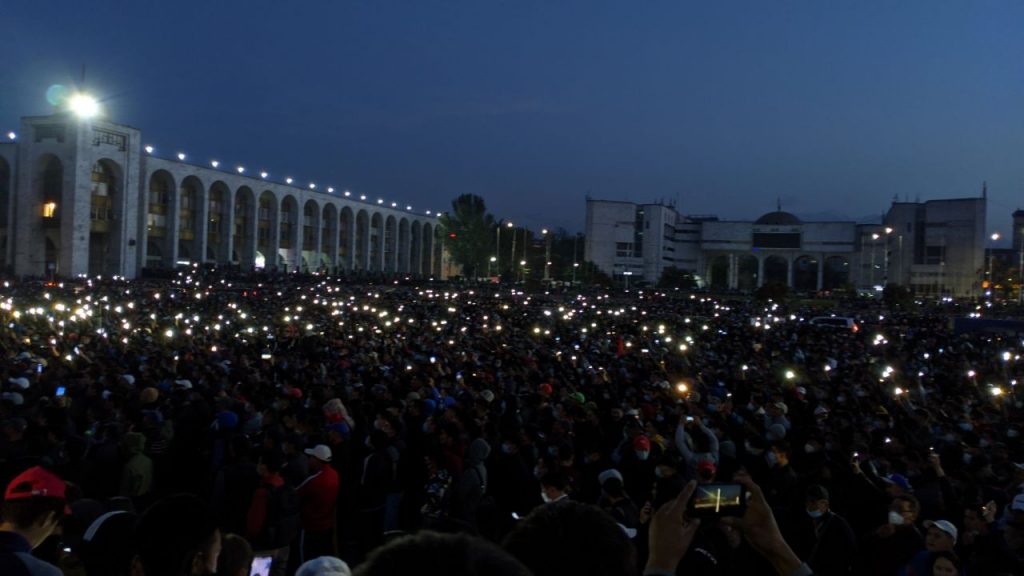Opposition in Kyrgyzstan, protesting against election results, seizes government buildings
The opposition in Kyrgyzstan has seized government buildings and announced a change of power. This happened after the country held parliamentary elections, followed by chaos and clashes in the streets of the capital. The protesters considered the elections rigged. According to official results, the main opposition forces did not make it to the parliament.
On the night of October 6, thousands of protesters broke into the White House building, which houses the parliament and the presidential residence. The protesters also seized the office of the President Sooronbay Jeenbekov.

In addition, the rebels also seized the buildings of the State Committee for National Security, where they released former President Almazbek Atambayev from prison, and established control over state television.
________________________________________
•Will Russia ‘buy’ Belarus? Expert opinions
•How the president of Chechnya rose to fame in Abkhazia
•Russia: who’s afraid of 5G and why
________________________________________
One of the leaders of the protests, MP Zhanar Akayev, told Radio Liberty about the opposition’s further plans:
“It is necessary to create a coordinating government and appoint a commandant in the city. But I couldn’t find anyone. Tomorrow a new prime minister and a people’s government must be appointed. The second stage is to hold popular elections.”
Prior to this, clashes between police and protesters took place in the center of Bishkek. On the evening of October 5, at least 100 wounded were reported, including MP Zhanar Akayev, according to the Kyrgyz news source Kloop.
У Филармонии pic.twitter.com/B6m800QAe9
— Kloop (@kloopnews) October 5, 2020
The riots broke out after an opposition rally gathered in Ala-Too Square. It was organized by supporters of eight opposition parties that did not pass the 7% barrier. They call the elections illegitimate due to many violations – bribery, use of administrative resources, etc.

After the protesters announced that they would remain in the square indefinitely, the police began to disperse them, using water cannons, tear gas and stun grenades. According to the official version of the authorities, they had to take such actions because the rally participants went to storm the parliament building.
Водометы, газ, светошумовые pic.twitter.com/zH3q1Bg5FA
— Kloop (@kloopnews) October 5, 2020
According to the preliminary results of the counting of votes in the elections, four parties were in the lead: Birimdik (Unity) with 24.95 percent, Mekenim Kyrgyzstan (My Motherland Kyrgyzstan) – 24.31 percent, Kyrgyzstan (8.91 percent) and Butun Kyrgyzstan (7.21 percent).
All of them more or less support the current government. The main opposition parties, Ata-Meken and the Social Democrats, according to official results, did not enter parliament.
“Purchased” elections?
Kyrgyzstan, which is considered the most democratic country in Central Asia, has a presidential-parliamentary form of government since 2010.
The power in the country has already changed twice through a revolution – in 2005 and 2010.
As noted by the BBC, the current elections are characterized by a large number of reports of vote-buying: according to political analysts, this is facilitated by the economic crisis and citizens’ distrust of politics. The so-called tax per vote is actively discussed on social networks – voters are offered amounts from 1,500 to 5,000 soms [about $19-63] for the required mark on the ballot.
“Cynicism and a two-way willingness to monetize the vote – parties buying and voters selling it – is an indicator of the degradation of political processes in the country and is a direct evidence of the complete separation of the authorities from society and its true needs,” political analyst Asel Doolotkeldieva notes. “And this suggests that politics has lost its meaning in the eyes of many citizens.”


















